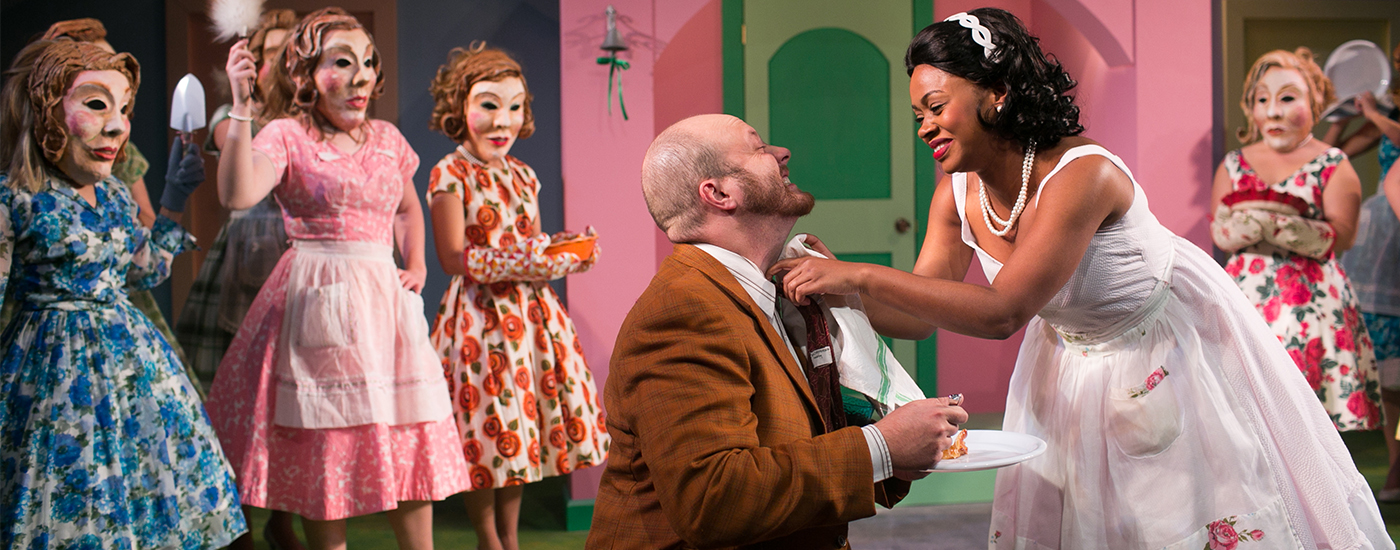As the old saying goes, “Hell hath no fury like a woman scorned.” Ancient Greek myth, no stranger to strong emotions, has its share of violent women, understandably enraged by the dirt that life has dumped on them. But few go so far as Medea, who kills her own children to get back at her two-timing husband.
There are several reasons why Euripedes’ Medea, now at the Redhouse Arts Center, is one of the most often revived of the ancient Greek tragedies. Feminists often rejoice in this spectacle of a woman taking control of her fate in a male-dominated world. Also important is the playwright’s masterful psychological examination of a mind in extreme distress. And the play offers a plum role for an actress who wants to strut her stuff as a great tragedienne.
While leaving the Euripedes text (translated by Diane Arnson Svarlien) pretty much intact, director Stephen Svoboda has updated the setting to an imagined 1950s of perfect homemakers. The period music includes bouncy tunes like “Mr. Sandman.” Set designer Andrea Ball‘s facade of pink and green houses is fronted by a perfect row of hydrangeas. Medea (Joan Anderson) enters, wailing her grief through a second-story window with charming green shutters.
Most striking is the chorus of Corinthian women, their expressions fixed in Sandra Knapp‘s exquisite masks. Their sing-song chanting and choreographed movements are much like one might have heard in ancient Greece. But their flowered dresses are straight out of the Eisenhower era, with crinoline-petticoated skirts, dainty tea aprons and seamed stockings running up their demure legs. As insignia of their life pursuits, they bear apple pies and feather dusters. Bravo to the whole production team for their attention to detail.
The role of Medea makes tremendous demands on the very appealing Joan Anderson. For the full hour and a half, she is almost always the center of the action, whether sparring with her estranged husband Jason (Adam Perabo), cajoling Creon (John Bixler) into a day’s reprieve before being exiled, or demonstrating her skill as a sorceress by advising Aegeus (amusingly rendered by Chad Tallon as a traveling vacuum salesman) on cures for his impotency, much to the amusement of the tittering chorus. David Cotter as the messenger provides another comic touch, as he forgets the horror of the event he has come to report, carried away by the splendor of the robe of Jason’s murdered bride-to-be.
Anderson is most effective in the dramatically staged final scene. No longer dressed as the perfect, docile little housewife the others would like her to be, she reappears in a flaming red robe of the barbarian (e.g. non-Greek) sorceress, a powerful woman borne away on the shoulders of the chorus.









